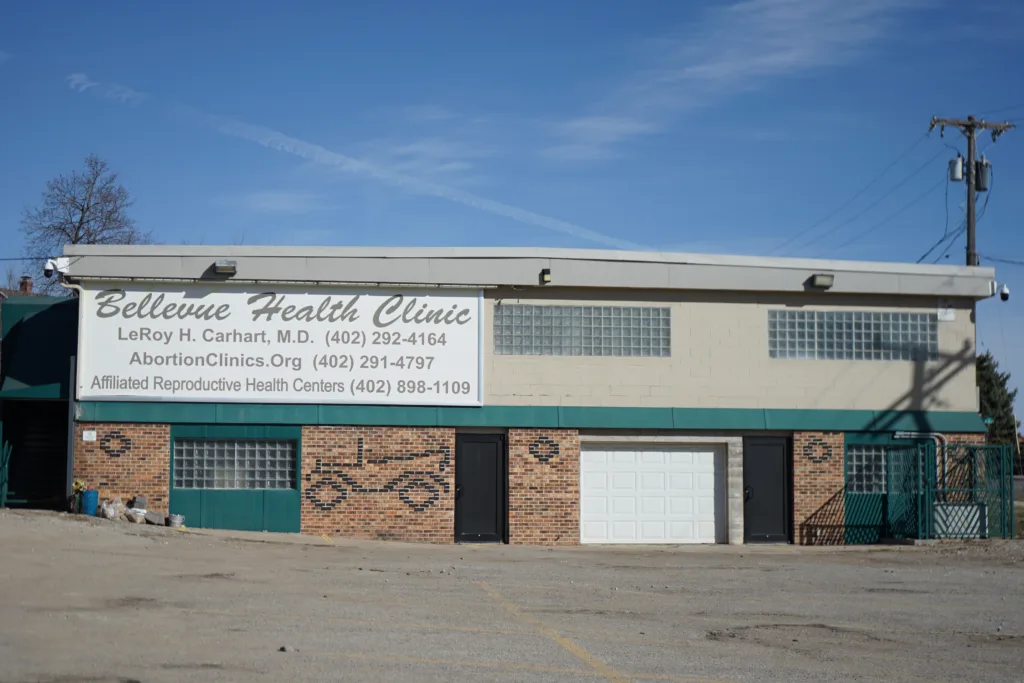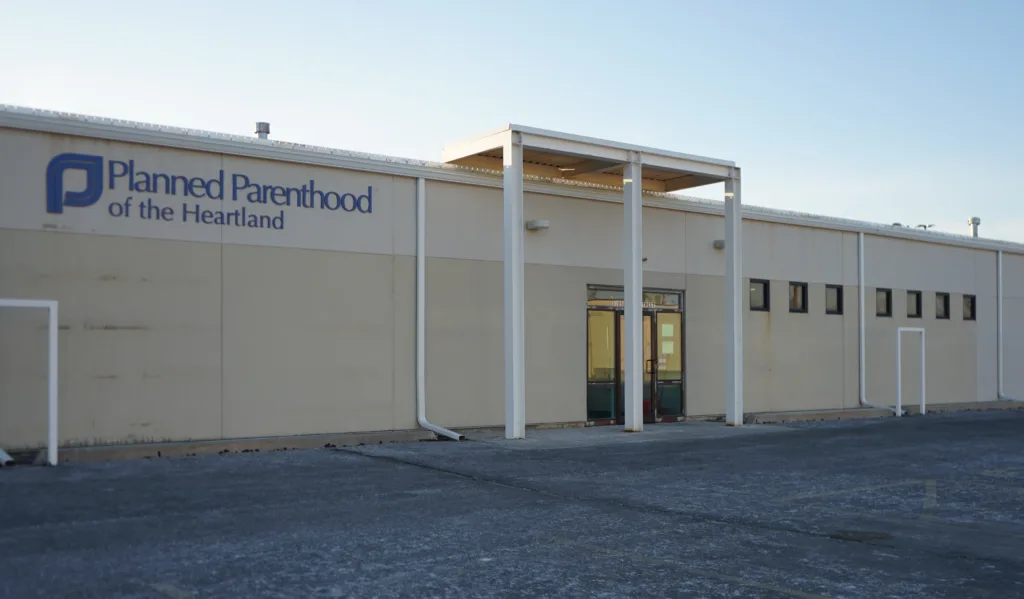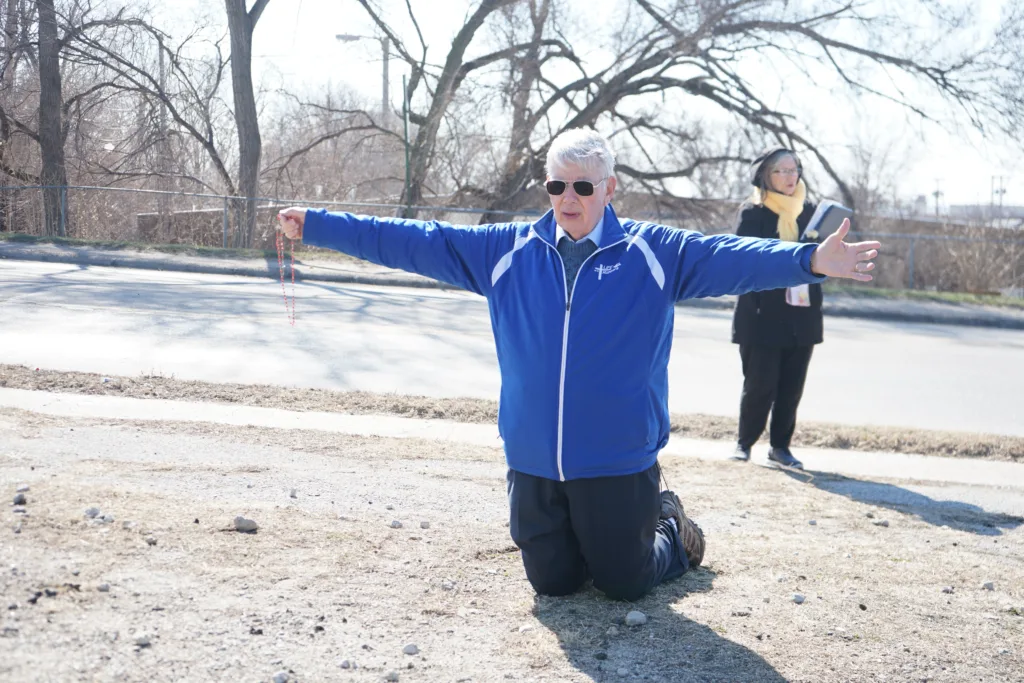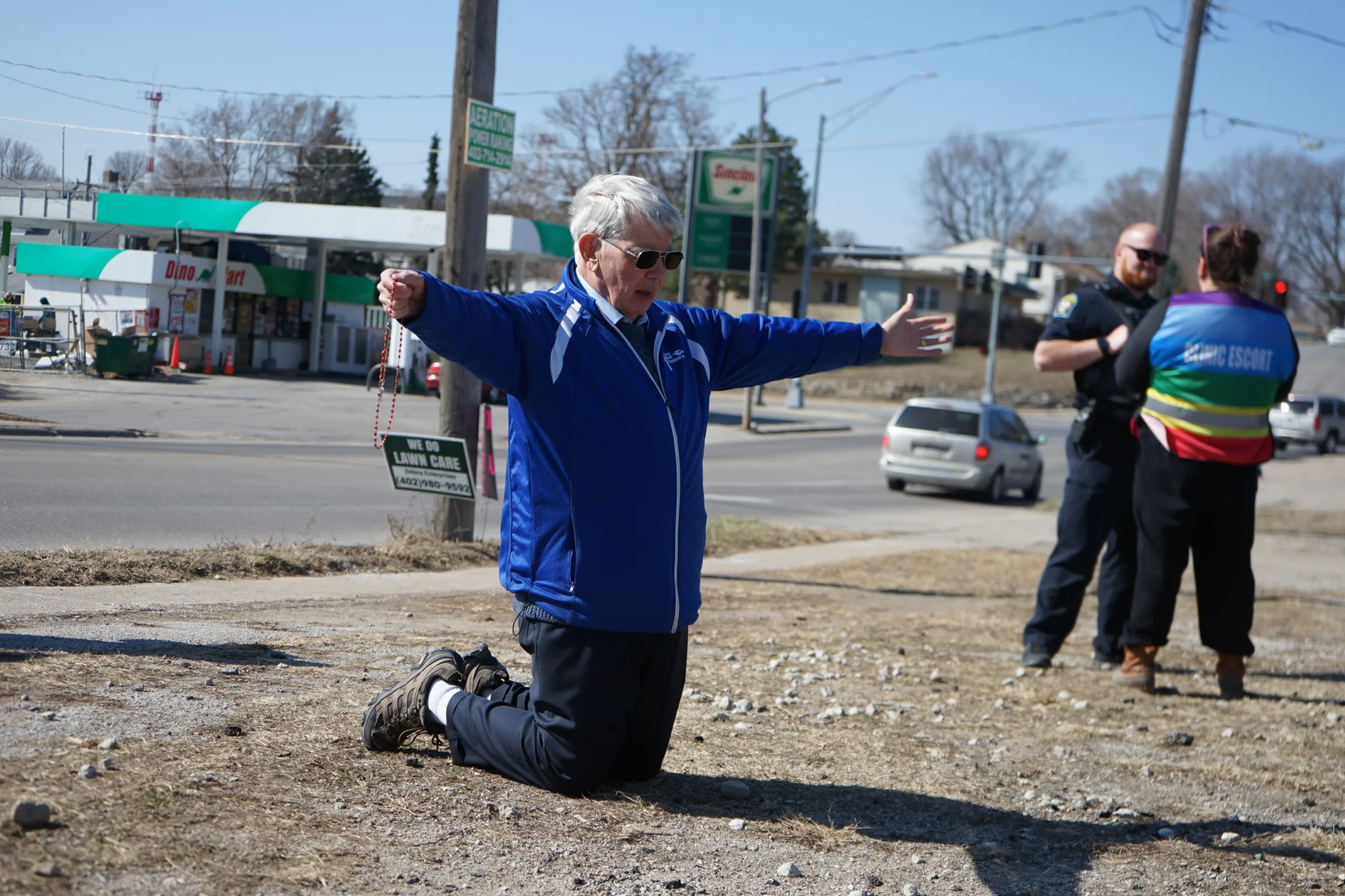Nebraska is now down to one surgical abortion provider less than a year after lawmakers passed a 12-week ban.
The Bellevue clinic founded by the late Dr. LeRoy Carhart – once one of only three providers in the country to perform third-trimester abortions – no longer does surgical procedures but does offer patients abortion pills, clinic employees confirmed to the Flatwater Free Press.
That means Nebraskans who want a surgical abortion or who are 11 weeks pregnant – past the cutoff when clinics often stop offering the abortion pill – must go to Planned Parenthood, their sole legal option left in the state.
Nebraskans’ options are dwindling even as more out-of-state abortion seekers, residents of states with stricter abortion bans like Missouri, Mississippi and Texas, come to Nebraska to receive abortion services, abortion rights advocates said.
This increased out-of-state demand, limited availability and packed appointment schedules are causing more Nebraskans, in turn, to travel out-of-state to seek an abortion. Leaders of Nebraska Abortion Resources, a nonprofit abortion fund, told the Flatwater Free Press the rate of their clients crossing state borders to get an abortion has more than doubled since the 12-week ban.
Using an abortion medication also continues to grow more popular since Roe v. Wade was overturned, Nebraska abortion rights advocates believe. The abortion pill is often perceived as less intrusive, but there are limitations, including potential diminished effectiveness later in the pregnancy. Most clinics only administer the medication up to the 11-week mark.
“Even in the last five, six years … I have seen that jump personally, and some of that is because it’s like, ‘Well, we can get you in for a medication abortion next week, but if you want a surgical abortion, it might be another three weeks,’” said Shelley Mann, executive director of Nebraska Abortion Resources, which provides financial assistance to those seeking an abortion.
Medication abortion made up 75% of abortions reported to the Nebraska Department of Health and Human Services in 2022, under Nebraska’s old 20-week ban. That rate will likely rise now that the stricter, 12-week ban is in place, abortion rights advocates said.
The Bellevue clinic that has stopped surgical abortions has long been situated, both symbolically and practically, at the center of Nebraska’s abortion fight.

Carhart, who died last year, was the lead plaintiff of two cases heard by the U.S. Supreme Court after he challenged a state law and then a federal law that prohibited an abortion procedure that removes an intact fetus from the uterus, which anti-abortion activists refer to as a form of partial-birth abortion. Carhart faced threats – his house was once burned down – and his friend and colleague Dr. George Tiller was murdered by an anti-abortion extremist in Wichita, Kansas.
Carhart’s clinic was the leading abortion provider in Nebraska as recently as 2022, when it was responsible for 58% of all abortions reported to the DHHS, according to the department’s latest report.
Janine Weatherby, Carhart’s daughter and operator of the clinic, didn’t respond to Flatwater Free Press’ requests to discuss the clinic’s decision to switch to medication abortion only.
But leaders of Planned Parenthood, Nebraska’s sole remaining abortion provider, say the availability of abortion services – particularly surgical abortion – often boils down to a single problem: staff.
Planned Parenthood’s only full-time Nebraska-based physician retired in 2022, and her position is unfilled, said Andi Curry Grubb, state executive director of Planned Parenthood North Central States.
Mounting abortion restrictions and the ongoing uncertainty amid legal fights have made it challenging for the organization to recruit more doctors. Planned Parenthood’s Nebraska clinics now rely on part-time abortion providers who live in Nebraska and other states, Curry Grubb said.

Patients who want a surgical abortion but can’t get one in Nebraska are often sent to Minnesota, said Mann, who runs the Nebraska Abortion Resources fund.
Planned Parenthood closed its Council Bluffs clinic at the beginning of 2024. It’s currently only providing abortion services in its Lincoln location as its Omaha health center undergoes construction. The organization plans to move all abortion services to Omaha once the health center is ready.
“It’s easier for us to consolidate it into one location and do more days in that one location than to have it separated across multiple locations,” Curry Grubb said.
A Nebraska law passed in 2011 requires a physician to be physically present in the room when a patient takes the first pill to begin an abortion. This law outlaws abortion medication bought on the internet or delivered via telehealth. Violators can be charged with a felony, though the law says patients shouldn’t face any civil and criminal penalties.
Patients then take misoprostol, often within 48 hours of the first pill, mifepristone, which contracts and empties the uterus. Heavy bleeding is expected after the misoprostol intake.
The so-called abortion pill has become more widely used since the COVID-19 pandemic, when many clinics cut down in-person visits.
Since the Supreme Court overturned Roe v. Wade, six states have enacted “interstate shield laws” that protect physicians from criminal liability as they prescribe mifepristone and misoprostol to be mailed to patients, The New York Times reported.
Anti-abortion advocates question the safety of mifepristone and misoprostol.
“We’ve always had great concern for the chemical abortion drugs,” said Sandy Danek, executive director of Nebraska Right to Life, citing its failure rate, as well as risk for side effects or complications when used past the suggested timeframe.
Danek applauds the state ban on distributing abortion medication via telehealth and says the measure increases medical scrutiny.
Danek said she and other abortion opponents are concerned that the Biden administration is trying to remove “the medical oversight and medical safeguards that (we) need to protect the health and safety of the women.”

Data show the drugs are safe, said Dr. Amy Bryant, a gynecologist based in Durham, North Carolina and board member of the Society of Family Planning. Going through a medication abortion is safer than carrying a pregnancy to full term, she said.
Nonetheless, having surgical providers available is important, Bryant said, so that they can help patients when a medication abortion is unsuccessful or unavailable.
Dr. Megan Masten, a Colorado-based OB-GYN and fellow with Physicians for Reproductive Health, said many of her patients elect to end their pregnancy with a procedure for a variety of reasons. Some might not have the ability to take time off work. Others are victims of domestic violence or have other reasons to fear a partner.
“There are many people who want medication abortion, but there are also people who want a procedure,” Masten said.
In rare cases when a medication abortion doesn’t work correctly, and a surgery is then needed, having a provider trained to do that is crucial to patient health, Bryant said.
“What we’re going to be seeing is a real maldistribution of people with expertise in this area,” Bryant said, “where people in some areas of the country have access to excellent care and others in areas that just don’t have that and are at risk for more pregnancy complications.”



6 Comments
Something you don’t see in those photos is that Dr. Carhart’s clinic is directly across from Saint Mary’s Catholic middle/elementary school, which I attended throughout my childhood. Growing up in a Catholic environment directly across from an abortion clinic made abortion a repeated and stressed issue in my class. We would talk about it frequently, about how it’s against our religion, and about how we hope for an end to all abortions. I often recall one eighth grade “field trip” where we went across the street and prayed through the stations of the cross in front of the clinic. We were told not to speak or look at anybody else who might be protesting (because they were obviously looney), and not to engage with anyone who tried to talk to us. I’m proud to say my view on abortion has made a dramatic shift since then, I’m very pro-choice now, but I just wanted to highlight that this clinic has been actively antagonized for as long as I’ve been alive, and even longer before that. I hope they stay strong without Dr. Carhart and continue providing needed resources to the women of Nebraska
” continue providing needed resources to the women of Nebraska”
Not sure how killing millions of female babies is good for women anywhere…unless you’re a minor woman whose domineering and abusive boyfriend demands an abortion.
Not in my name. Not in my state.
When does life begin?
Much like porn shops and striptease dens, it’s time for this “clinic” to go. This is 2024…we’ve all grown up.
Aborting Native babies, black babies, brown babies–this race-based genocide occurring at these “clinics” is a national shame.
Not in my name. Not in my state.
Good riddance
Every uterus having person deserves the choice to do what they want with their own body. Government should not control peoples bodies either.
Lets change the tides and make PREGNANCY ILLEGAL yea? We are overpopulated enough I’d say. That is how ridiculous anti abortion sounds.
Thank you for reporting, this is a huge issue that needs our attention. We need more doctors to stand up and work at these clinics and help women. This is a medical procedure that is only for the person being pregnant to decide. If you disagree, don’t get an abortion but leave the ones who do choose alone. The choice isn’t easy and made with a very thoughtful process.